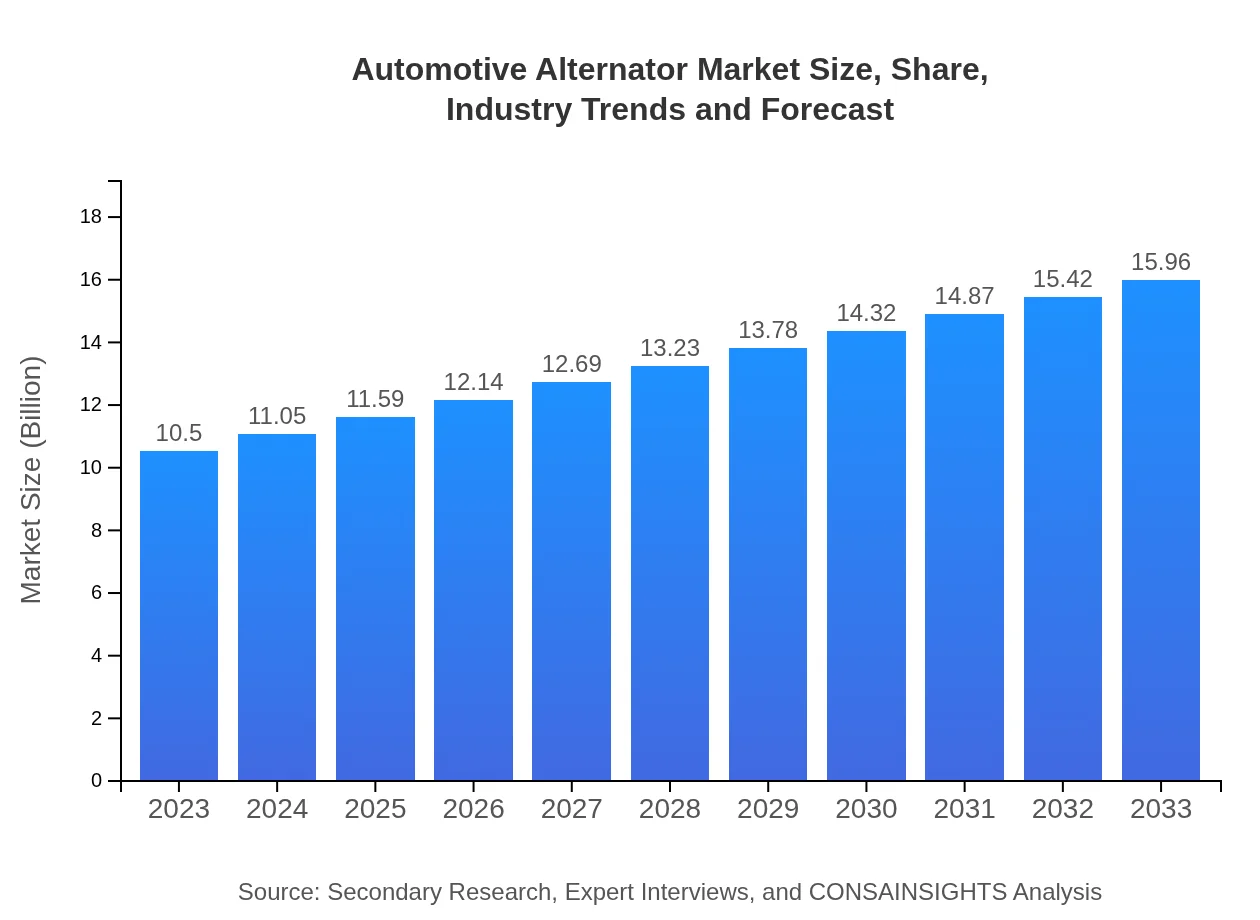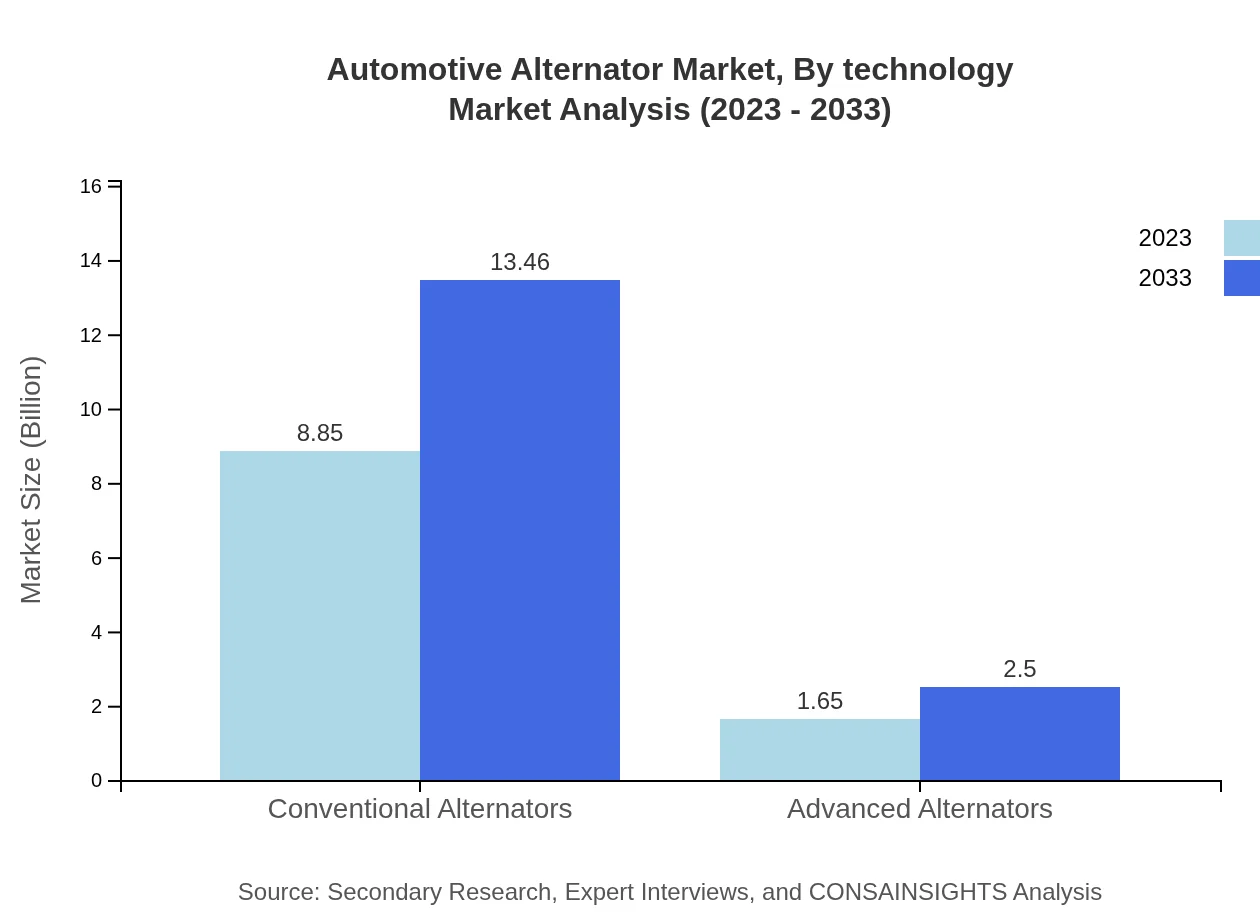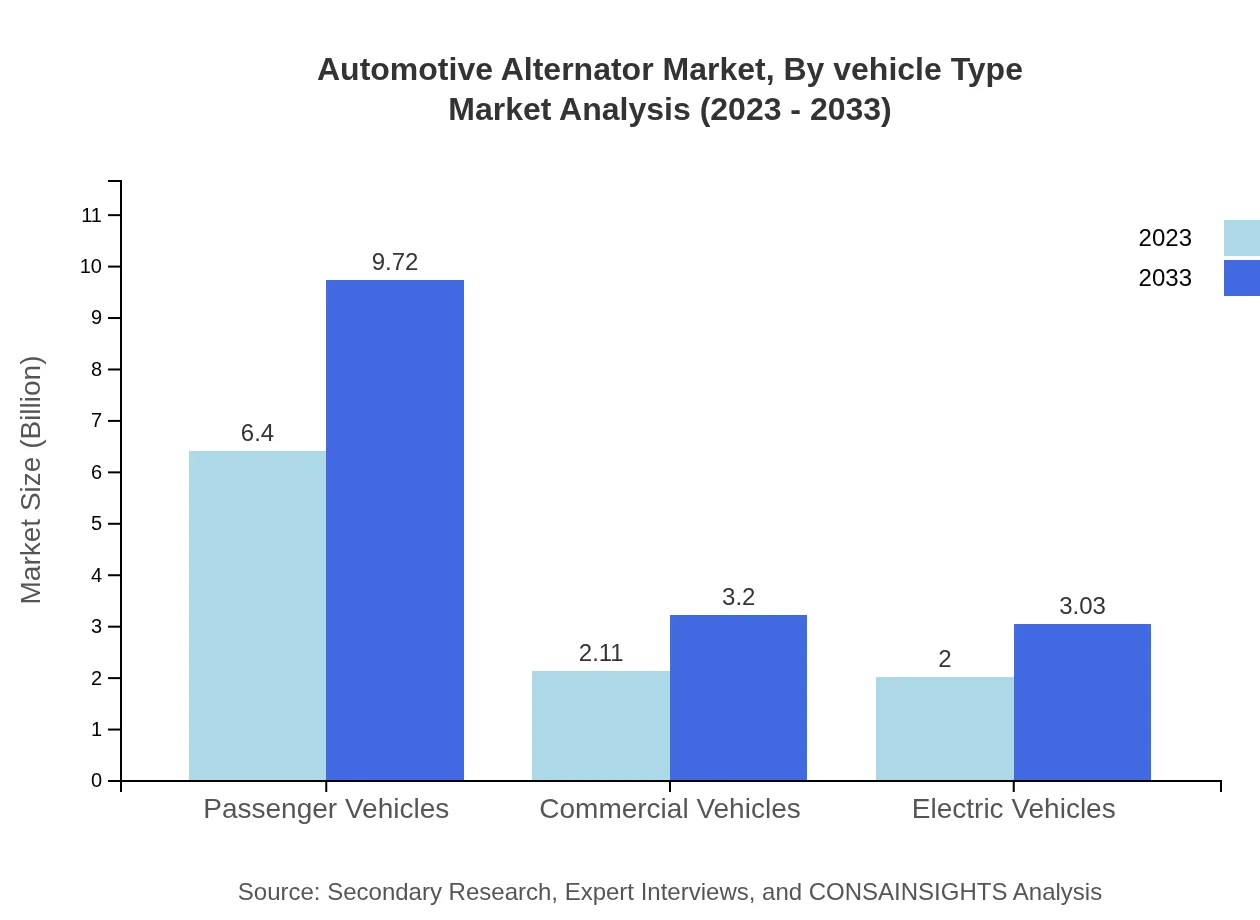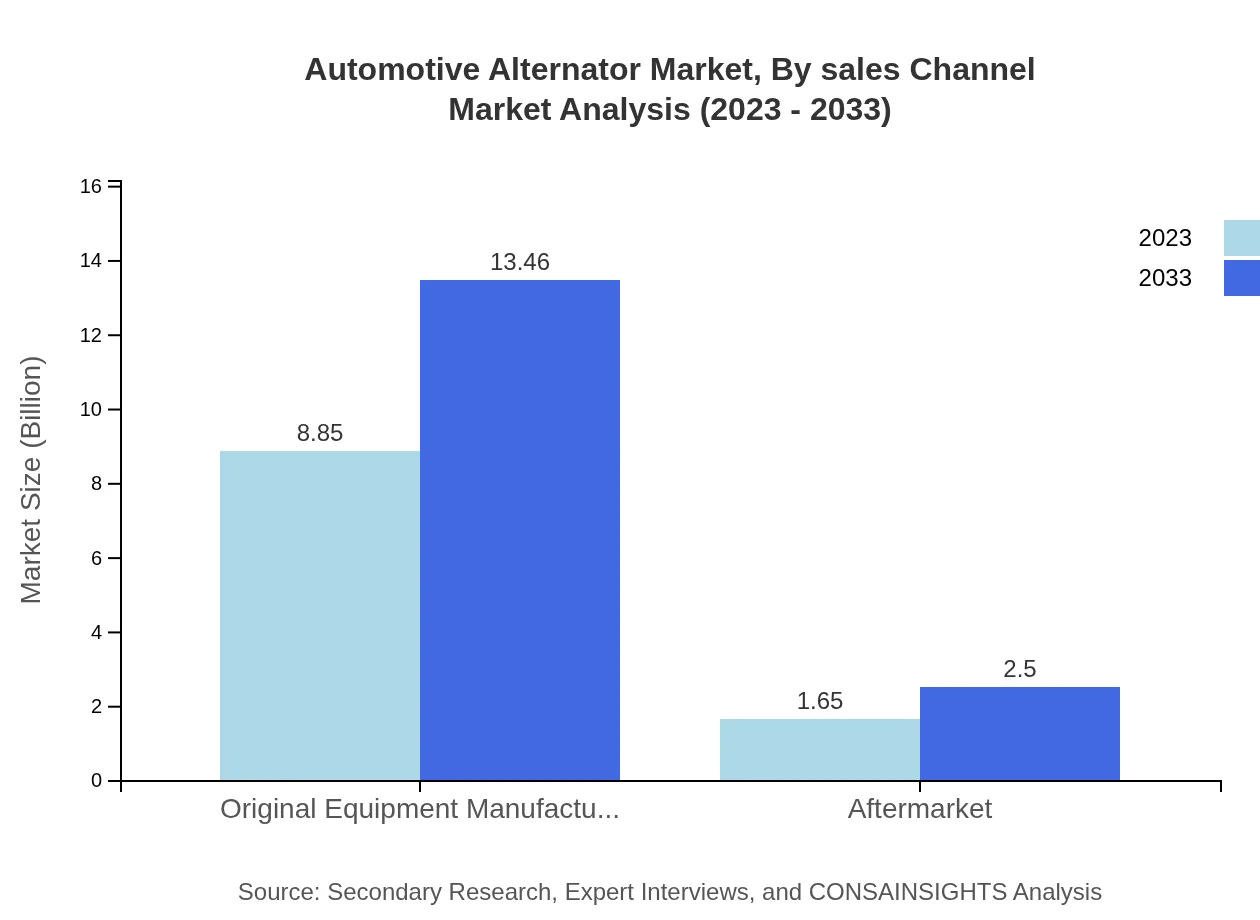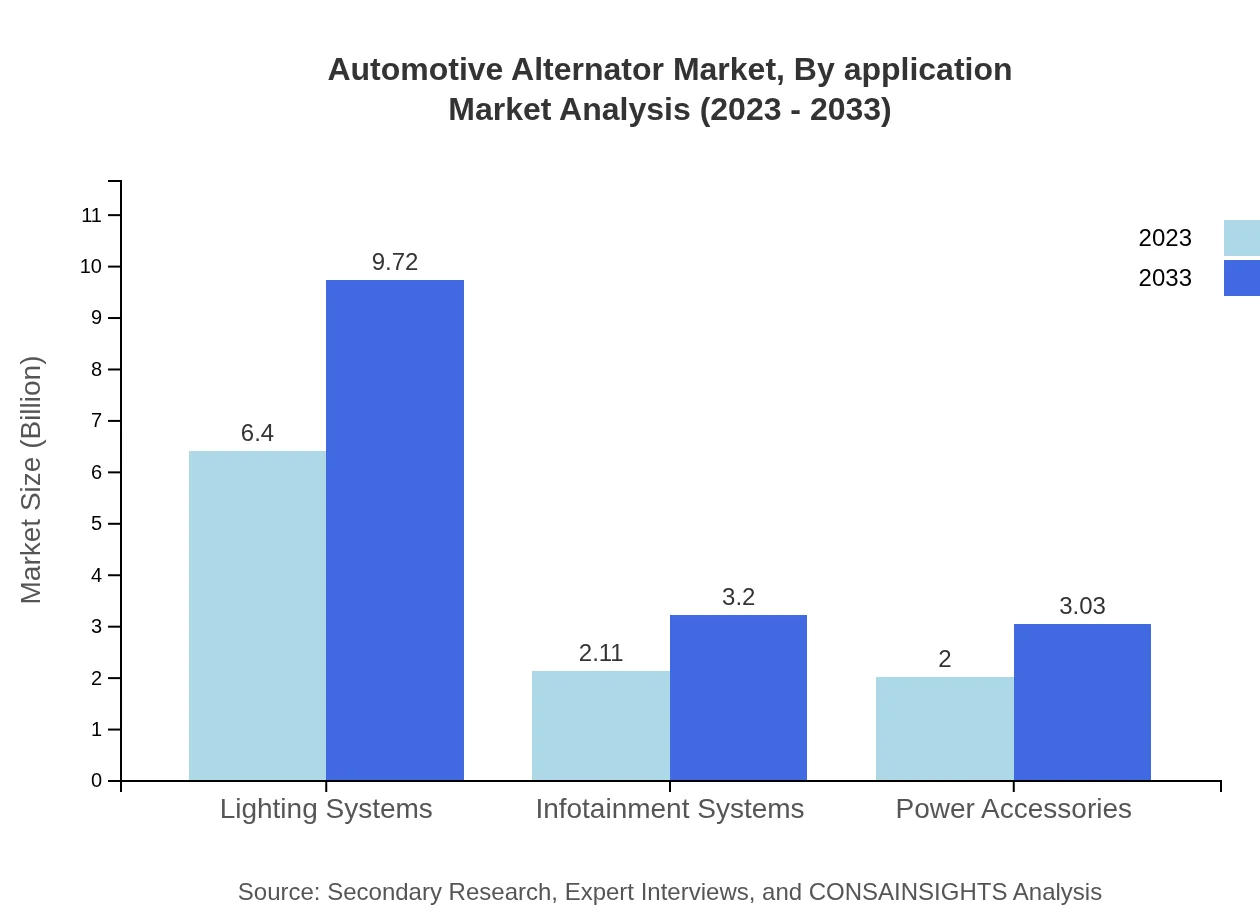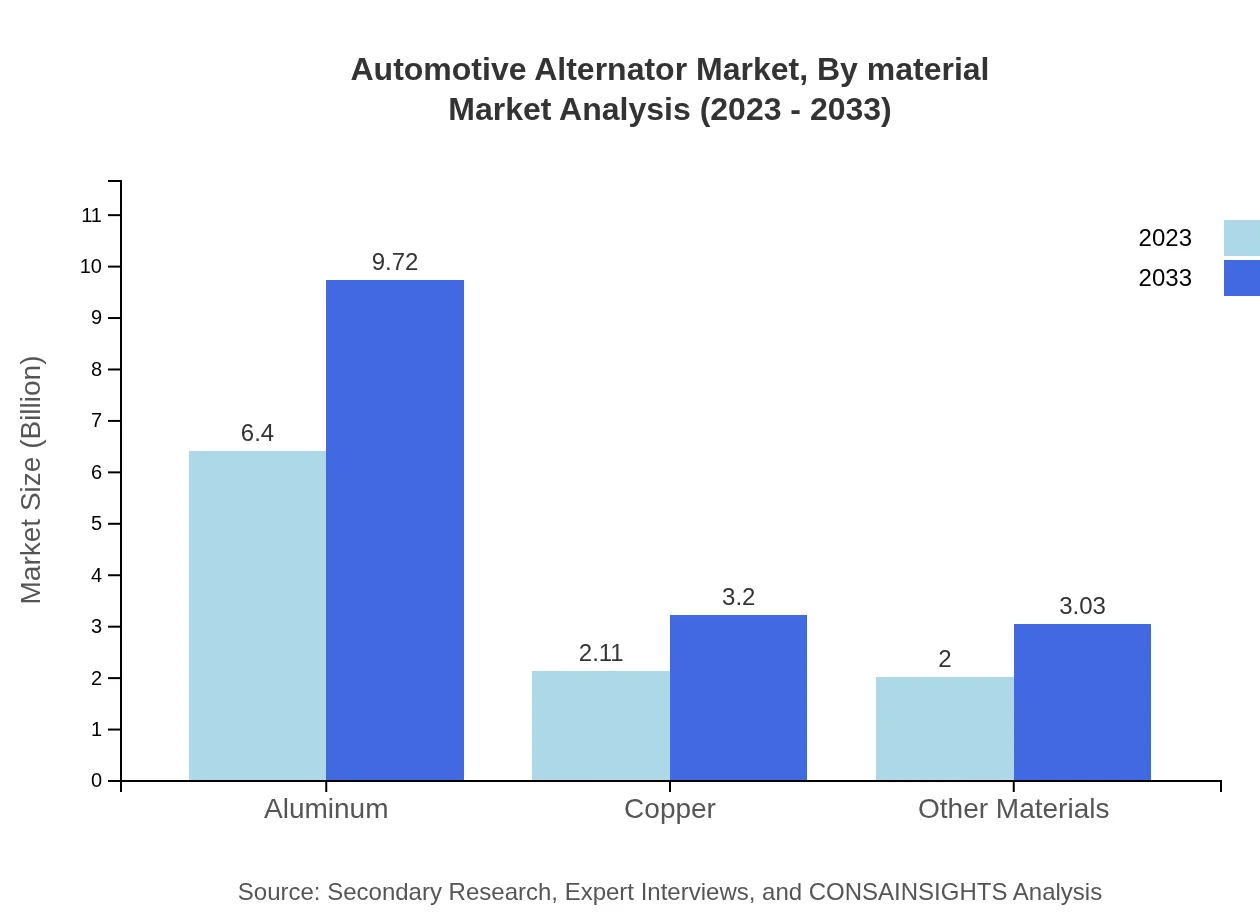Automotive Alternator Market Report
Published Date: 02 February 2026 | Report Code: automotive-alternator
Automotive Alternator Market Size, Share, Industry Trends and Forecast to 2033
This detailed report provides an in-depth analysis of the Automotive Alternator market, covering forecasts from 2023 to 2033, industry dynamics, regional insights, market size, key players, technological trends, and future growth prospects.
| Metric | Value |
|---|---|
| Study Period | 2023 - 2033 |
| 2023 Market Size | $10.50 Billion |
| CAGR (2023-2033) | 4.2% |
| 2033 Market Size | $15.96 Billion |
| Top Companies | Bosch, Denso Corporation, Valeo, Delphi Technologies |
| Last Modified Date | 02 February 2026 |
Automotive Alternator Market Overview
Customize Automotive Alternator Market Report market research report
- ✔ Get in-depth analysis of Automotive Alternator market size, growth, and forecasts.
- ✔ Understand Automotive Alternator's regional dynamics and industry-specific trends.
- ✔ Identify potential applications, end-user demand, and growth segments in Automotive Alternator
What is the Market Size & CAGR of Automotive Alternator market in 2023?
Automotive Alternator Industry Analysis
Automotive Alternator Market Segmentation and Scope
Tell us your focus area and get a customized research report.
Automotive Alternator Market Analysis Report by Region
Europe Automotive Alternator Market Report:
Europe's automotive alternator market is anticipated to grow from $3.03 billion in 2023 to $4.61 billion by 2033. The shift towards EVs and stringent emission regulations in European countries are significantly boosting market expansion.Asia Pacific Automotive Alternator Market Report:
In 2023, the Asia Pacific automotive alternator market is estimated at $2.23 billion, expected to grow to $3.40 billion by 2033. Rapid industrialization, increasing automotive production, and the rise of vehicle electrification are major factors contributing to this growth in the region.North America Automotive Alternator Market Report:
North America holds a market size of $3.44 billion in 2023, which is expected to grow to $5.23 billion by 2033. The robust automotive industry, along with technological advancements and a focus on electric vehicles, are key drivers for growth.South America Automotive Alternator Market Report:
The South American market for automotive alternators is valued at $0.36 billion in 2023 and is projected to reach $0.55 billion by 2033. This growth is primarily driven by increasing vehicle sales and growing investment in the automotive industry within the region.Middle East & Africa Automotive Alternator Market Report:
In the Middle East and Africa region, the automotive alternator market is valued at $1.43 billion in 2023, with growth projected to $2.17 billion by 2033. The increasing adoption of commercial vehicles and regional automotive manufacturing initiatives are expected to drive growth.Tell us your focus area and get a customized research report.
Automotive Alternator Market Analysis By Technology
The automotive alternator market is segmented into conventional and advanced alternators. In 2023, the conventional alternators hold a market size of $8.85 billion, expected to grow to $13.46 billion by 2033, capturing an 84.31% market share. Advanced alternators, while smaller in market share, are growing rapidly, expanding from $1.65 billion in 2023 to $2.50 billion by 2033, holding a significant 15.69% share.
Automotive Alternator Market Analysis By Vehicle Type
The market is categorized into passenger vehicles, commercial vehicles, and electric vehicles. Passenger vehicles dominate with a market size of $6.40 billion in 2023, projected to reach $9.72 billion by 2033, representing a 60.92% market share. Commercial vehicles follow with a size of $2.11 billion, expected at $3.20 billion in 2033, while electric vehicles are expected to grow from $2.00 billion to $3.03 billion during the same period.
Automotive Alternator Market Analysis By Sales Channel
The market is segmented into Original Equipment Manufacturer (OEM) and Aftermarket. In 2023, the OEM segment holds a significant market share at $8.85 billion, slated to increase to $13.46 billion by 2033. Meanwhile, the Aftermarket segment, although smaller, is growing from $1.65 billion to $2.50 billion within the same timeframe.
Automotive Alternator Market Analysis By Application
Applications within the automotive alternator market include lighting systems, infotainment systems, and power accessories. In 2023, the lighting systems segment dominates the market at $6.40 billion, expected to grow to $9.72 billion by 2033. Infotainment systems are projected to grow from $2.11 billion to $3.20 billion, while power accessories expand from $2.00 billion to $3.03 billion in the same forecast period.
Automotive Alternator Market Analysis By Material
The materials segment includes aluminum, copper, and other materials. Aluminum leads with a market size of $6.40 billion in 2023, anticipated to reach $9.72 billion by 2033. Copper follows at $2.11 billion, projected to grow to $3.20 billion, with other materials also contributing to growth from $2.00 billion to $3.03 billion by 2033.
Automotive Alternator Market Trends and Future Forecast
Tell us your focus area and get a customized research report.
Global Market Leaders and Top Companies in Automotive Alternator Industry
Bosch:
A leading global supplier of automotive components, Bosch offers advanced alternator solutions recognized for their efficiency and reliability, contributing significantly to the automotive alternator market.Denso Corporation:
A key player in the automotive industry, Denso specializes in alternator manufacturing with a focus on innovative designs that promote vehicle efficiency and performance.Valeo:
Valeo is recognized for producing advanced automotive alternators that support the transition to electric vehicles and comply with global emission standards.Delphi Technologies:
Delphi Technologies focuses on harnessing technology to deliver powerful alternator solutions, enhancing the performance of both conventional and electric vehicles.We're grateful to work with incredible clients.









FAQs
What is the market size of automotive Alternator?
The automotive alternator market is valued at $10.5 billion in 2023 and is projected to grow at a CAGR of 4.2%, reaching significant expansion by 2033.
What are the key market players or companies in this automotive Alternator industry?
Key players in the automotive alternator industry include Bosch, Delco, Valeo, and Denso, known for their innovative technologies and comprehensive distribution network globally.
What are the primary factors driving the growth in the automotive Alternator industry?
Growth drivers in the automotive alternator industry include increasing vehicle production, growing demand for fuel-efficient vehicles, and advancements in alternator technology enhancing performance.
Which region is the fastest Growing in the automotive Alternator?
Asia Pacific is the fastest-growing region in the automotive alternator market, with a projected increase from $2.23 billion in 2023 to $3.40 billion by 2033.
Does ConsaInsights provide customized market report data for the automotive Alternator industry?
Yes, ConsaInsights provides customized market report data tailored to specific needs within the automotive alternator industry, ensuring relevant insights.
What deliverables can I expect from this automotive Alternator market research project?
You can expect detailed market analysis reports, segment breakdowns, competitive landscape insights, and growth forecasts specific to the automotive alternator market.
What are the market trends of automotive Alternator?
Current trends in the automotive alternator market include the shift towards advanced alternators, increased focus on electric vehicles, and the rising importance of efficiency in automotive systems.

